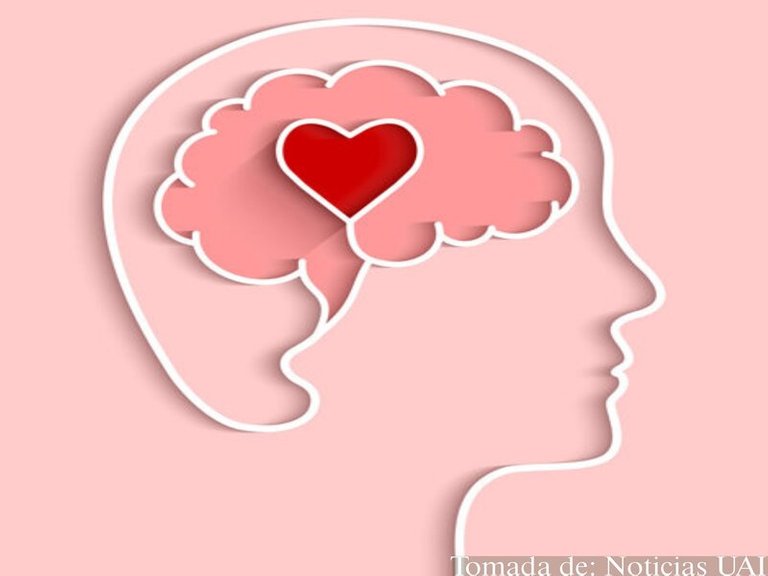¡Hola Hivers! 💖
Hi Hivers!💖
 FUENTE
FUENTEToday I want to share with you information about something that we all have eventually gone through: anxiety, stress and anguish. It is important to know how to differentiate and identify what is happening to us in order to find the tools that allow us to cope with the situation or feeling that invades us.
Hoy en día hemos normalizado tantas conductas, tanta información, pero muchas veces continuamos restándole importancia a la salud mental y a lo que todo esto conlleva. Hay tanta información al alcance de la mano en la redes sociales y medios de comunicación que muchas veces nos dejamos llevar por lo primero que vemos o escuchamos y no buscamos ni investigamos más allá de lo que nos presentan.
Today we have normalized so many behaviors, so much information, but often we continue to downplay the importance of mental health and what it all entails. There is so much information at our fingertips in social networks and media that we often get carried away by the first thing we see or hear and we do not look or investigate beyond what is presented to us.
Les comparto información de estudios realizados por profesionales en el área de la salud y psicología que nos ayudan a diferenciar los tres conceptos, los cuales son sumamente importantes porque a diario vivimos situaciones que nos exponen a ellos y conociéndolos incluso podemos aumentar nuestra calidad de vida. Con lo anterior me refiero a que, por desconocimiento de nuestras emociones, por generalizar lo que atravesamos, restamos importancia y valor al sentir, la idea de este post es que tengamos una pista de que nos sucede y de esta forma dar los primeros pasos para acercarnos a la solución.
I share information from studies conducted by professionals in the area of health and psychology that help us to differentiate the three concepts, which are extremely important because every day we live situations that expose us to them and knowing them we can even increase our quality of life. With the above I mean that, by ignorance of our emotions, by generalizing what we go through, we downplay the importance and value of feeling, the idea of this post is that we have a clue of what happens to us and thus take the first steps to approach the solution.
Ahora bien, ya entrando en el tema en cuestión iniciaremos con investigaciones que nos ayudaran a identificar la ansiedad. Iniciamos hablando de ella con esta cita de la investigación:
“La ansiedad es una parte de la existencia humana, todas las personas sienten un grado moderado de la misma, siendo ésta una respuesta adaptativa.” (Sierra, Ortega y Zubeidat, 2003)
Now then, already entering the topic in question we will start with research that will help us to identify anxiety. We start talking about it with this quote from the research:
"Anxiety is a part of human existence, all people feel a moderate degree of it, this being an adaptive response." (Sierra, Ortega and Zubeidat, 2003)
En general el termino hace referencia a una mezcla de manifestaciones mentales y físicas, que experimentamos como anticipación a una situación que puede representar peligro, una emoción displacentera que viene acompañada no solo de tensión emocional sino también con síntomas somáticos (Ayuso, 1988; Bulbena, 1986).
In general, the term refers to a mixture of mental and physical manifestations, which we experience in anticipation of a situation that may represent danger, an unpleasant emotion that is accompanied not only by emotional tension but also by somatic symptoms (Ayuso, 1988; Bulbena, 1986).
La diferenciamos del miedo precisamente por esto, en el caso de la ansiedad no necesariamente estamos ante un peligro inminente, pero si lo estamos previendo; el miedo será entonces la respuesta focalizada ante un peligro inminente. Sucede con la ansiedad que el objeto o situación que activa la misma, no necesariamente es identificado como peligro para otras personas; nos referimos entonces a la anticipación de lo que pensamos probablemente sea una amenaza para el individuo que la experimenta; a los ojos del resto una situación imprevisible e indefinible.
We differentiate it from fear precisely because of this, in the case of anxiety we are not necessarily facing an imminent danger, but we are anticipating it; fear will then be the focused response to an imminent danger. It happens with anxiety that the object or situation that activates it, is not necessarily identified as a danger for other people; we refer then to the anticipation of what we think is probably a threat for the individual who experiences it; in the eyes of the rest an unpredictable and indefinable situation.
Sentimos agitación e inquietud en la cual nos anticipamos al peligro, dominados por una sensación de catástrofe donde percibimos de tal forma este peligro que incluso tratamos de buscar cómo solucionarlo.
We feel agitation and restlessness in which we anticipate danger, dominated by a sense of catastrophe where we perceive this danger in such a way that we even try to find a way to solve it.
En el caso de la angustia, las investigaciones nos ayudan a identificarla definiendola como:
“Es la emoción más universalmente experimentada por el ser humano, tiene un efecto de inmovilización”
In the case of anguish, research helps us to identify it by defining it as:
"It is the emotion most universally experienced by human beings, it has an immobilizing effect."
En el caso de la angustia estamos ante un sentimiento totalmente desagradable que nos paraliza, nos limita. Generalmente se relaciona con situaciones de desesperación donde percibimos a nivel fisiológico síntomas como aumento de la frecuencia cardiaca, del flujo sanguíneo (Ayuso, 1988). Incluso es una emoción que puede llegar a ser patológica, llegado el punto en que es constante y reduce la libertad de la persona.
In the case of anguish we are faced with a totally unpleasant feeling that paralyzes and limits us. It is generally related to situations of desperation where we perceive at a physiological level symptoms such as increased heart rate and blood flow (Ayuso, 1988). It is even an emotion that can become pathological, to the point where it is constant and reduces the person's freedom.
Estamos ante una emoción totalmente displacentera que viene acompañada de síntomas físicos los cuales limitan nuestra reacción ante el hecho que la produce; a diferencia de la ansiedad donde el factor predominante era el síntoma psicológico.
We are facing a totally unpleasant emotion that is accompanied by physical symptoms which limit our reaction to the fact that produces it; unlike anxiety where the predominant factor was the psychological symptom.
Respecto al estrés los estudios lo definen como
“Una relación entre la persona y el ambiente, en la que el sujeto percibe en qué medida las demandas ambientales constituyen un peligro para su bienestar, si exceden o igualan sus recursos para enfrentarse a ellas (Lazarus y Folkman, 1984)”
Regarding stress studies define it as.
"A relationship between the person and the environment, in which the subject perceives the extent to which environmental demands constitute a danger to his well-being, if they exceed or equal his resources to cope with them (Lazarus and Folkman, 1984)."
No se trata como las anteriores de una emoción, por el contrario, es el agente generador de emociones; es la respuesta del individuo a las exigencias que está expuesto. Puede ser percibido como positivo o negativo, positivo en los escenarios que el estrés es generador de motivación para la persona; negativo cuando genera sentimientos de incapacidad incluso depresión o ansiedad. Todo va a depender de cómo percibimos ese reto o cambio al que nos enfrentamos y las herramientas o capacidades que tenemos para ello.
It is not an emotion like the previous ones, on the contrary, it is the generating agent of emotions; it is the response of the individual to the demands he/she is exposed to. It can be perceived as positive or negative, positive in scenarios where stress generates motivation for the person; negative when it generates feelings of incapacity, even depression or anxiety. Everything will depend on how we perceive the challenge or change we are facing and the tools or capabilities we have for it.
Como profesional en Psicología, mi recomendación principal siempre será asistir a terapia psicológica, aunque la mayoría de nosotros al día de hoy aceptamos con mayor frecuencia asistir a terapia mucho podemos quedarnos en eso, tener mil excusas para no asistir porque no lo necesitamos o bien porque no queremos que nadie nos diga qué decisiones tomar; y no materializamos la idea. La terapia psicológica parte de la idea de suministrar herramientas para que estemos en capacidad de manejar las emociones y situaciones que a diario experimentamos. Así que anímense a dar ese paso.
As a professional in Psychology, my main recommendation will always be to attend psychological therapy, although most of us nowadays accept more frequently to attend therapy, we can stay there, have a thousand excuses not to attend because we do not need it or because we do not want anyone to tell us what decisions to make; and we do not materialize the idea. Psychological therapy is based on the idea of providing tools so that we are able to manage the emotions and situations that we experience daily. So be encouraged to take that step.
Esto fue todo por hoy queridos Hivers, continuaremos pronto profundizando en estos temas.
That's all for today dear Hivers, we will continue to delve deeper into these topics soon.
Gracias por llegar hasta aquí.
¡Abrazos!
Fuente:
Thanks for making it this far.
Hugs!
Source:
Sierra, Juan Carlos, Ortega, Virgilio, & Zubeidat, Ihab. (2003). Ansiedad, angustia y estrés: tres conceptos a diferenciar. Revista Mal Estar e Subjetividade, 3(1), 10-59. Recuperado en 19 de marzo de 2022, de Dale click aqui.
